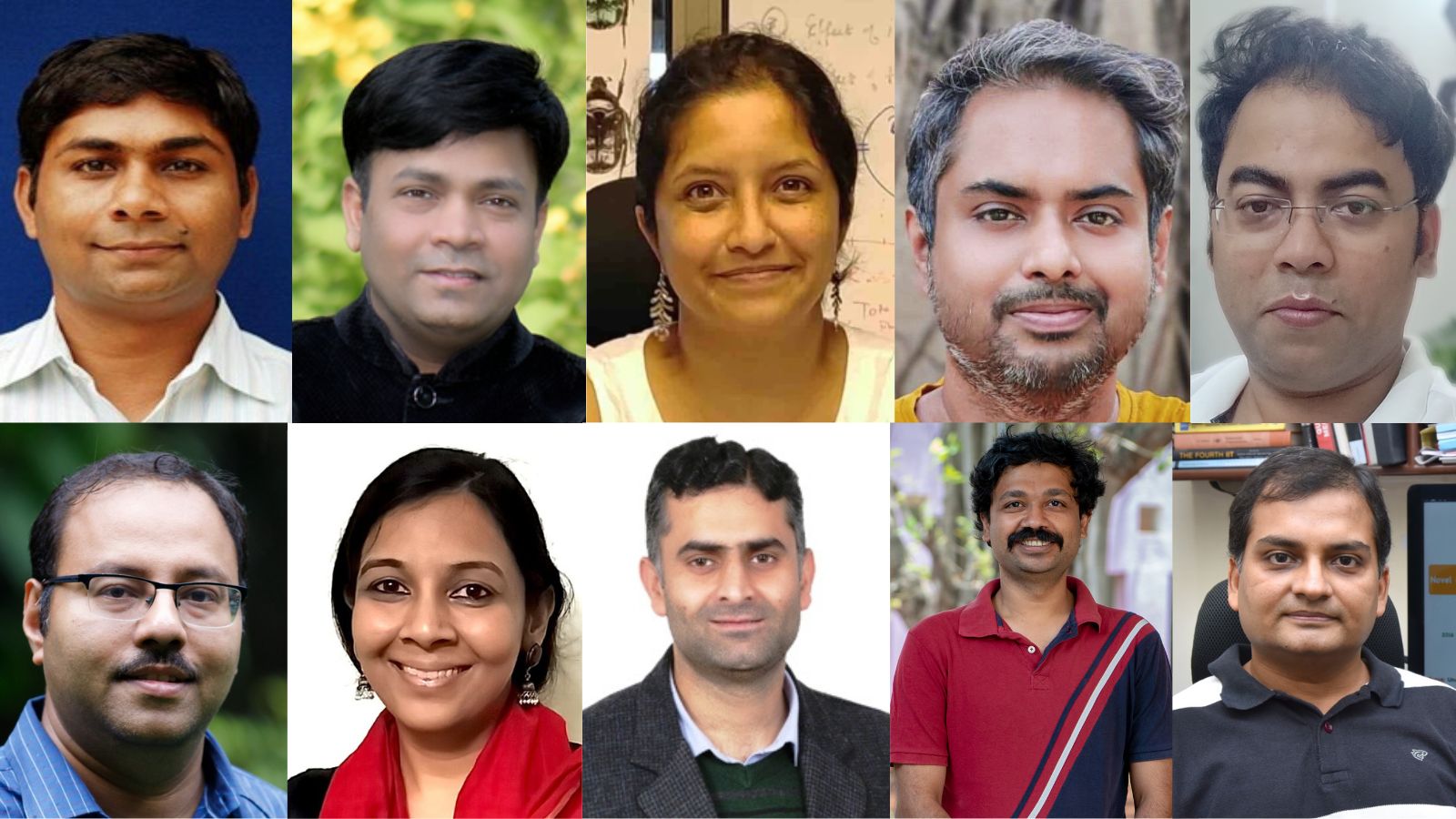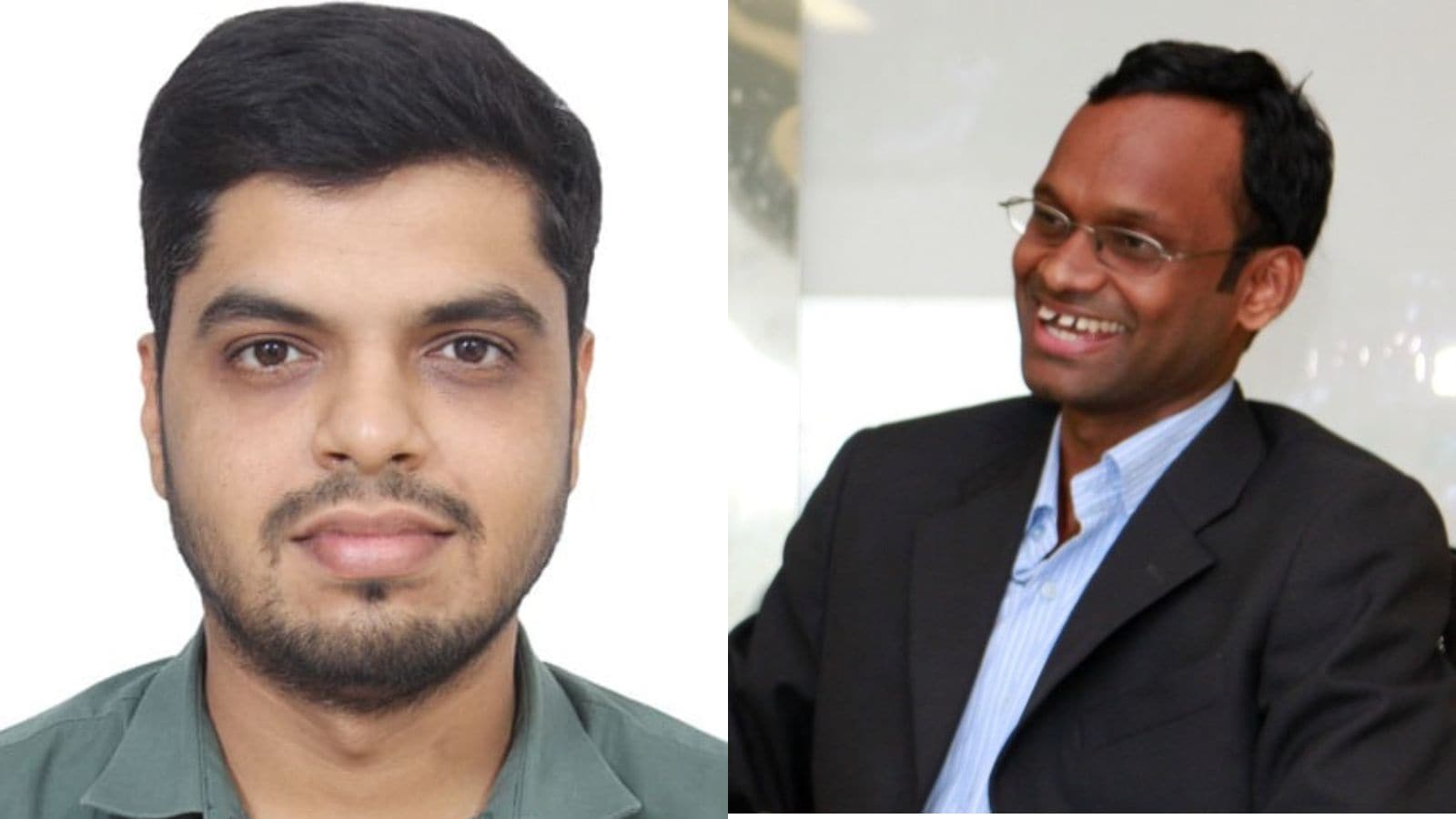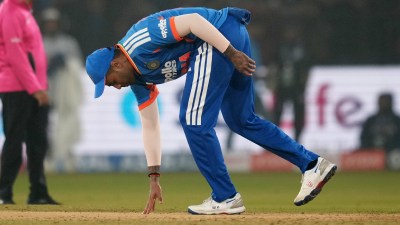From Quantum frontiers to Life 2.0: Meet the 14 young scientists shaping India’s scientific future
The award “recognises and encourages young scientists up to the age of 45 years who have made an exceptional contribution in any field of science and technology”. The Indian Express caught up with them.
 Dr Satendra K Mangrauthia, Dr Jagdis G Kapuganti, Dr Deepa Agashe, Dr Debarka Sengupta, Dr Dibyendu Das, Prof Arkaprava Basu, Prof Shweta Agarwal, Dr Suresh Kumar, Prof Surhud S More, Prof Amit Kumar Agarwal
Dr Satendra K Mangrauthia, Dr Jagdis G Kapuganti, Dr Deepa Agashe, Dr Debarka Sengupta, Dr Dibyendu Das, Prof Arkaprava Basu, Prof Shweta Agarwal, Dr Suresh Kumar, Prof Surhud S More, Prof Amit Kumar AgarwalFrom making plants and rice more resilient, and tracking cancer cells in a patient’s blood, to keeping data safe in the incoming age of quantum computers, creating life-like matter or “Life 2.0”. These are some of the research areas that build bridges between disciplines and are being pioneered by the next wave of young Indian scientists who are among the 14 picked this year for the Vigyan Yuva-Shanti Swarup Bhatnagar Awards. The award “recognises and encourages young scientists up to the age of 45 years who have made an exceptional contribution in any field of science and technology”. The Indian Express caught up with them.
Dr Satendra K Mangrauthia, Agricultural Science
A senior scientist at Indian Institute of Rice Research in Hyderabad, he steered the development of one of India’s first genetically edited rice varieties, DDR Dhan 100 (Kamala). This variety was found to produce higher yields with improved drought tolerance and early maturity. “The team worked tirelessly to conduct a multi-location field trial that demonstrated the efficacy (of the rice variety),” he told The Indian Express.
Dr Jagdis G Kapuganti, Agricultural Science
A scientist with National Institute of Plant Genome Research in Delhi, he completed his PhD and postdoctoral fellowship in Germany, including at Max Planck Institute of Molecular Plant Physiology. Kapuganti’s research focuses on the role of nitric oxide in keeping plants alive in low oxygen environments, such as flooding, and how genetically modified plants may use nitrogen-based nutrients to resist certain pathogens. He is also working on ways to create plants that can use nitrogen more efficiently so that excessive use of nitrogen-based fertilisers will not hamper growth.
Dr Deepa Agashe, Biological Sciences
She is an evolutionary biologist at National Centre for Biological Sciences, Bengaluru. Using insects, her team is trying to analyse evolution by uncovering genetic, ecological and behavioural factors influencing the colonisation of new habitats — and the establishment and consequences of host-bacterial associations.
“The award reflects the hard work of my entire group and the ecosystem in which we thrive. I am pleased to see recognition for work in evolution, which is the core framework for all of biology and, yet, is represented by a very small community of scientists in India,” she said.
Dr Debarka Sengupta, Biological Sciences
He is a professor of computational biology at Indraprastha Institute of Information and Technology-Delhi and an adjunct professor at the Queensland University of Technology-Brisbane. His team has been using methods that fuse statistics, machine learning and big data algorithms to look into the molecular portraits of individual cells, and study ways to recognise all the cancer cells in a patient’s blood. His team has developed blood tests for eleven platelet genes, which can accurately identify multiple types of cancers with minimal infrastructure.
Dr Dibyendu Das, Chemistry
Based in IISER, Kolkata, his research focuses on adaptive materials inspired by living matter with potential applications in healthcare, diagnostics and future societal needs.
“This recognition strengthens and supports our confidence in pursuing a very exciting and emerging area of science — systems chemistry. This field looks at networks of reactions that show emergent, life-like properties. Through this, we hope to explore whether we can create life-like matter or life 2.0 and also understand how living matter may have first evolved on earth,” he said.
Dr Waliur Rahaman, Earth Science
A geologist, he now deploys isotope geochemistry to study ice sheets at the poles. At National Centre for Polar and Ocean Research in Goa, his research focuses on climate change and its impact on ice sheets along Greenland and Antarctica, which is pushing up sea levels. One of his group’s leading findings was identifying critical tipping points for ice sheet growth in West Antarctica.
“Some of the critical questions challenging mankind are linked to climate change. Today’s topical discussions surround the threshold set at the Paris agreement and whether more efforts are needed to limit temperature rise below 1.5 degree Celsius,” he said.
Prof Arkaprava Basu, Engineering Sciences
He is an associate of electrical, electronics, and computer sciences at the IISc, Bengaluru. As an expert in computer architecture, he works on exploring new ideas for interfaces between operating systems and hardware to improve performance and energy efficiency. His work focuses on memory management in computer systems, especially emerging big-memory applications that need to be more energy efficient.
Prof Shweta Agarwal, Mathematics & Computer Science
A professor at IIT-Madras, her work focuses on post-quantum cryptography — a method to keep data safe after quantum computers become available.
In an interview to YouTube channel ‘Best Place to Build’, she said: “Modern cryptography (says) we will prove to you mathematically that the only way you can break our code is by solving some very hard mathematical problem. Then you choose this underlying problem as something mathematicians have tried for decades and you have a lot of confidence that this problem is going to be very hard for any attacker.”
Prof Sabyasachi Mukherjee, Mathematics & Computer Science
He studies conformal dynamics, a branch of mathematics. His group also focuses on statistical physics and related areas. “I believe the future of mathematical research in India is very bright. There are many strong young mathematicians and a growing number of talented researchers who are returning to work in India. There is now strong expertise across a broad range of mathematical disciplines, which is wonderful for students and the continued growth of mathematics in India,” he said.
Dr Suresh Kumar, Medicine
Associated with the paediatrics wing of PGIMER, Chandigarh, his pioneering research has enhanced the understanding of the gut microbiome’s role in critical illness and infection prevention in children. He has also led several landmark clinical trials on probiotics in paediatric intensive care. “This honour will inspire me to work with greater dedication toward improving outcomes and quality of care for critically ill children in India,” he said.
Prof Surhud S More, Physics
Associated with IUCAA, Pune, his interests range from studying dark energy and dark matter, which is believed to comprise nearly 97 per cent of the universe. He is also focused on understanding the universe’s evolutionary history and its future. “Growing up in rural Maharashtra, becoming a scientist was not on my mind. But lectures by Prof Jayant Narlikar, Prof Yash Pal and others helped develop an interest. The opportunities to meet scientists and conduct research laid the foundation,” More said.
Prof Amit Kumar Agarwal, Physics
Currently in IIT-Kanpur, he is the first alumnus of Centre for High Energy Physics (CHEP), IISc, to receive the award. His work provides insights into the quantum behavior of materials and contributes to the design of next-generation nanoelectronic and quantum devices. “The Physics Department at IIT Kanpur has been my home and my karma bhoomi since 2012. IIT Kanpur is a place that constantly inspires curiosity, learning, and excellence,” he said.
 Ankur Garg, Prof Mohanasankar Sivaprakasam
Ankur Garg, Prof Mohanasankar Sivaprakasam
Ankur Garg, Space Science & Technology
At ISRO’s Space Application Centre, Garg’s work is key to India’s earth observation capability, which helps in a range of activities such as identifying potential fishing zones, drought monitoring, forest and water resource assessment, and disaster management.
“My work involves developing advanced computational and modelling solutions to transform it into analysis-ready and actionable images within stringent time constraints. It encompasses detailed modeling of space cameras, satellite orbits, and attitude dynamics, along with data calibration, correction, and automation that ensure the accuracy, reliability, and timeliness of satellite data products,” he said.
Prof Mohanasankar Sivaprakasam, Technology & Innovation
His team at IIT-Madras’s healthcare tech innovation centre has developed affordable products such as an ophthalmic image computing technology that can identify early diseases and a mobile unit for cataract surgery. As head of the Brain Centre at the institute, his team is also developing 3D maps, especially those capturing developing foetal brains.
“All the research and development that has been done by my team has led to commercial products that have touched the lives of 1.5 crore patients. We are also working on cutting edge science, such as the brain mapping initiative,” he said.
Other awards
Apart from the Yuva honours, the Vigyan Ratna for lifetime achievement was awarded posthumously to Prof Jayant Narlikar , cosmologist and founder-director of the Inter University Centre for Astronomy and Astrophysics (IUCAA).
Besides, eight senior scientists received the Vigyan Shri for “distinguished contributions”: Dr Gyanendra Pratap Singh (Agricultural Science), Dr Yusuf Mohammad Seikh (Atomic Energy), Dr K Thangaraj (Biological Sciences), Prof Pradeep Thalappil (Chemistry), Prof Aniruddha Bhalchandra Pandit (Engineering Sciences), Dr S Venkata Mohan (Environmental Science), Prof Mahan MJ (Mathematics and Computer Science) and Jayan N (Space Science and Technology).
The Vigyan Team award went to Council of Scientific and Industrial Research (CSIR) for Aroma Mission — a programme to promote high-value aromatic crops, such as lavender and rose, and support farmers in J&K as well as the Northeast.







